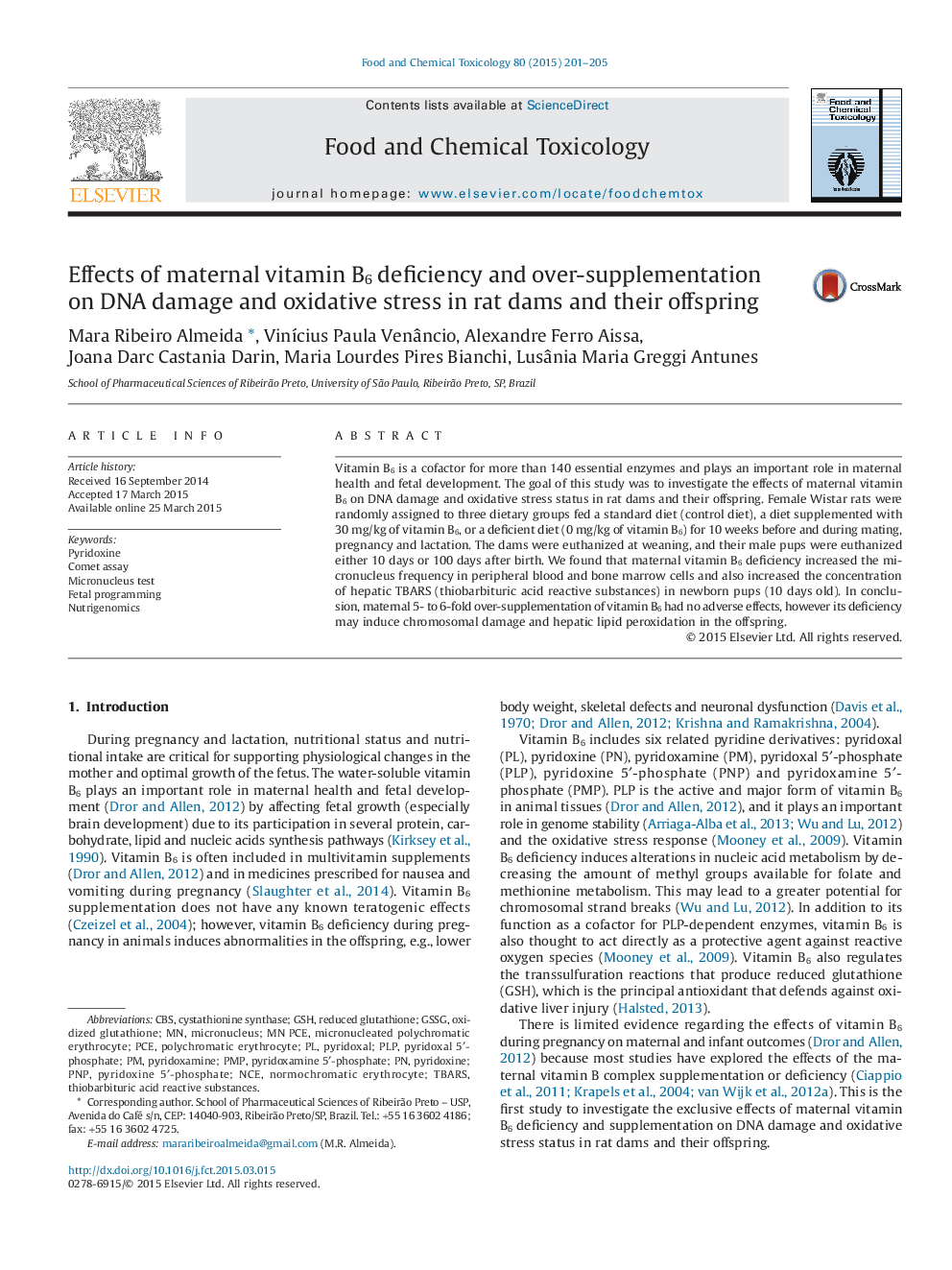| Article ID | Journal | Published Year | Pages | File Type |
|---|---|---|---|---|
| 5849816 | Food and Chemical Toxicology | 2015 | 5 Pages |
Abstract
Vitamin B6 is a cofactor for more than 140 essential enzymes and plays an important role in maternal health and fetal development. The goal of this study was to investigate the effects of maternal vitamin B6 on DNA damage and oxidative stress status in rat dams and their offspring. Female Wistar rats were randomly assigned to three dietary groups fed a standard diet (control diet), a diet supplemented with 30âmg/kg of vitamin B6, or a deficient diet (0âmg/kg of vitamin B6) for 10 weeks before and during mating, pregnancy and lactation. The dams were euthanized at weaning, and their male pups were euthanized either 10 days or 100 days after birth. We found that maternal vitamin B6 deficiency increased the micronucleus frequency in peripheral blood and bone marrow cells and also increased the concentration of hepatic TBARS (thiobarbituric acid reactive substances) in newborn pups (10 days old). In conclusion, maternal 5- to 6-fold over-supplementation of vitamin B6 had no adverse effects, however its deficiency may induce chromosomal damage and hepatic lipid peroxidation in the offspring.
Keywords
CBSPMPPCEGSHGSSGPLPTBARSPNPmicronucleated polychromatic erythrocyteNCEMicronucleus testnormochromatic erythrocytepolychromatic erythrocyteFetal programmingComet assaythiobarbituric acid reactive substancesMicronucleusNutrigenomicspyridoxalpyridoxal 5′-phosphatepyridoxaminepyridoxamine 5′-phosphatePyridoxinepyridoxine 5′-phosphatereduced glutathioneoxidized glutathione
Related Topics
Life Sciences
Agricultural and Biological Sciences
Food Science
Authors
Mara Ribeiro Almeida, VinÃcius Paula Venâncio, Alexandre Ferro Aissa, Joana Darc Castania Darin, Maria Lourdes Pires Bianchi, Lusânia Maria Greggi Antunes,
